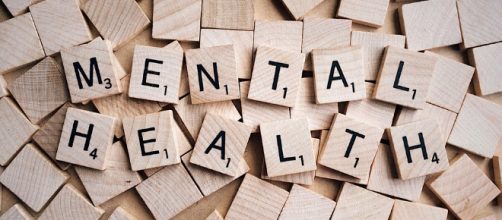Mental health, or better a lack thereof, is a problem in today's society, with special regard to anxiety and depression. Do people honestly know what those words mean? Do people know if they are suffering? Is there something we, as a society, can do?
Depression
I have had depression for as long as I can remember. It felt like loneliness, but then I found someone who made me happy, and I wasn't lonely anymore, but that feeling still lingered. I insisted I was fine though, and that I didn't need anything, against the urging of my girlfriend. I genuinely thought I was fine.
I was wrong. Finally, I listened to her and talked to somebody.
So, what is depression? It's not the feeling you get when your favorite team loses, although that does hurt incredibly. It's not what you feel when your parents say you can't do something, and you have to tell all your friends. It's not when anything happens.
In fact, at least in my own experience, it's when nothing at all happens, but you still get that same feeling. Webster defines it as "a state of feeling sad; a mood disorder marked especially by sadness, inactivity, difficulty in thinking and concentration, a significant increase or decrease in appetite and time spent sleeping, feelings of dejection and hopelessness, and sometimes suicidal tendencies."
Sadness is the key descriptor, though.
Everyone knows what it's like to be or feel sad, but what about when that sadness comes for no reason and affects how you live life? It isn't just a feeling anymore, but it's something more.
If you do happen to have it, or are depressed, what should you do? Ignore it for multiple years like I did? No, I'll take bad ideas for 500, Alex. Maybe it's medicine that you need. From 2011 to 2014, one in every nine Americans were taking antidepressants. Maybe its therapy, which I can say is an exceptional method. As usual, it depends on the person and the circumstances. However, I implore you not to ignore it.
Anxiety
Anxiety, like depression, comes without warning. Webster calls it "an abnormal and overwhelming sense of apprehension and fears often marked by physical signs (such as tension, sweating, and increased pulse rate), by doubt concerning the reality and nature of the threat, and by self-doubt about one's capacity to cope with it." I know someone who has anxiety.
They're constantly afraid of disappointing others. They desperately need to feel like they are enough, and not much makes them feel that way. Like depression, it can be caused by nothing at all.
Often, anxiety robs people of the ability to enjoy everyday life. You might be less inclined to try something if you have that anxiety hanging over you. The voice that whispers "What if you try, fail and disappoint everyone?" suddenly makes you not want to do whatever it was anymore. "Don't try and cook for your family because they might hate it." "Don't play the game on the chance that you may let your team down or embarrass yourself." It makes a hard life even harder.
There are several types of anxiety, and it is the most common illness in America.
There are many types: General anxiety disorder, panic disorder, social anxiety disorder, phobic disorders, obsessive-compulsive disorder, post-traumatic stress disorder, and separation anxiety disorder to name a few. OCD and PTSD are probably the most well-known, but PTSD isn't limited to just veterans. Anyone can have a traumatic experience; loss of loved one or accidents can cause it.
Just like depression, there are a few things you can do. With any problem you might be having, the number one thing NOT to do is ignore it. Don't bottle it up, even if your anxiety tells you shouldn't tell anyone. From 2001 to 2011, there was an increase in people using anxiety medication by 22 percent, based on a study done by Sigal Sharf for anxiety.com.
See a doctor, take some pills or talk to someone. Just don't ignore it.
Do something
If you or someone you know symptoms of depression or anxiety, such as tension, sweating, increased pulse rate, sadness, inactivity, difficulty focusing, dejection, hopelessness, or suicidal tendencies, please do something about it. According to the American Foundation for Suicide Prevention, suicide is the 10th most common cause of death in America. Yearly, almost 45,000 Americans kill themselves. Daily, that number is a frightening 123. Please, don't ignore it. Don't push it down as I did.


